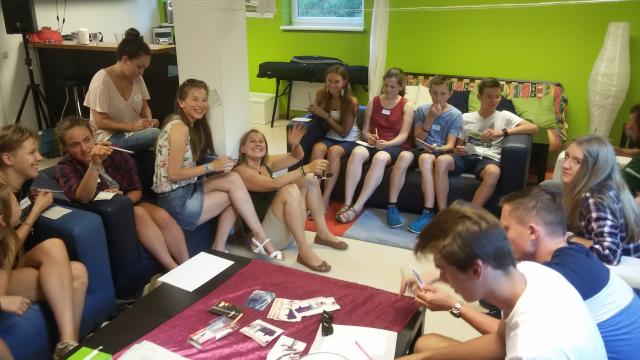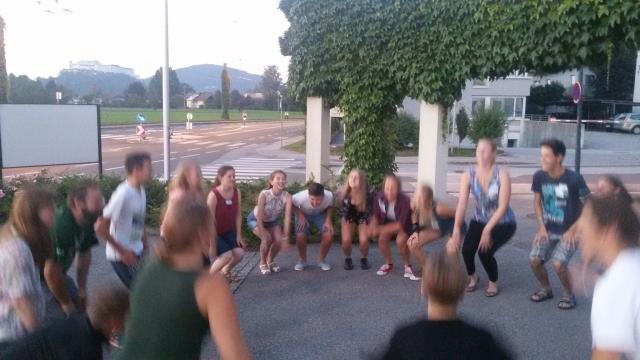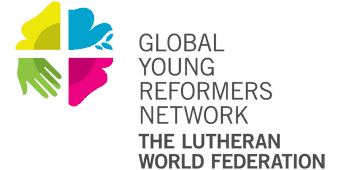Germany: Freed to be community

Humans - not for sale
Gemeinsam einsam?! Befreit werden zur Gemeinschaft (Freed to be community)
Young reformers: Benedikt Jetter and Isabel Sixt
Church: Evangelical Lutheran Church in Württemberg
Implementation period: 31.10.2015 - 31.12.2016
How many people were involved? 4
How many people did you reach? 57

What did you aim at?
With the project, we’d like to make young people assess themselves on the manner and extent of their relationship to and dependence on media. They will learn how to use media for themselves and how to decide on its use. We hope that such a presentation (a project, a thematic evening, a service or prayer) will contribute to a more conscious use of today’s media and to a change in their sense of community, encouraging them to “turn towards the neighbor” and “get inner freedom.”
What did you achieve?
We reached three different active youth groups in the church. These groups were presented the theme of community and communication in light of the Reformation jubilee and theological questions.
What did you do?
We got into contact with around 25 youth groups/communities and with their respective youth workers/pastors. We informed them, encouraged them to start projects in collaboration with us, and offered support and counseling. From time to time we asked them to report on the status/progress of their projects.
Interview with the young reformers Benedikt and Isabel
- What is the ongoing reformation you want to see in your church?
We would like to see that we go back to the roots and core of faith to keep the ongoing reformation. We should keep asking the important questions about our faith and beliefs. Also, the church must ask if they going in the right way. We need to evaluate rules and traditions, if they are outdated or not going in the right direction.
- What has been the reaction to the project among the youth?
The youth were interested to discuss the questions about reformation and the church nowadays.
- How has been the participation of youth in the reformation project?
We have had three groups, two in Germany and one in Austria. The youth leaders and the youth have been very interested in the project, organizing services together and also having informal meetings to discuss and reflect on reformation of our church. We had surveys and groups lead by youth leaders and pastors and the youth participating in the groups were invited to participate.
- What has been challenging about creating the project?
The timing was difficult during the reformation year and communication to get more youth workers and youth. The main challenge was so many activities related to the reformation anniversary organising similar projects. It was difficult to encourage the church workers to do something more in the agenda. The surveys was challenging to get the answers from them.
- Did everything go as planned?
We would have wished to get more groups. The communication did not work as we expected. We did not get any answers from youth workers unfortunately. The preparations of the meetings and the cooperation with the churches was good.
- How do you see the continuity of the project?
We would like to continue working on this project to discuss the reformation and there will be opportunities to do it later. The discussion can continue as the churches and youth workers can do it by themselves
